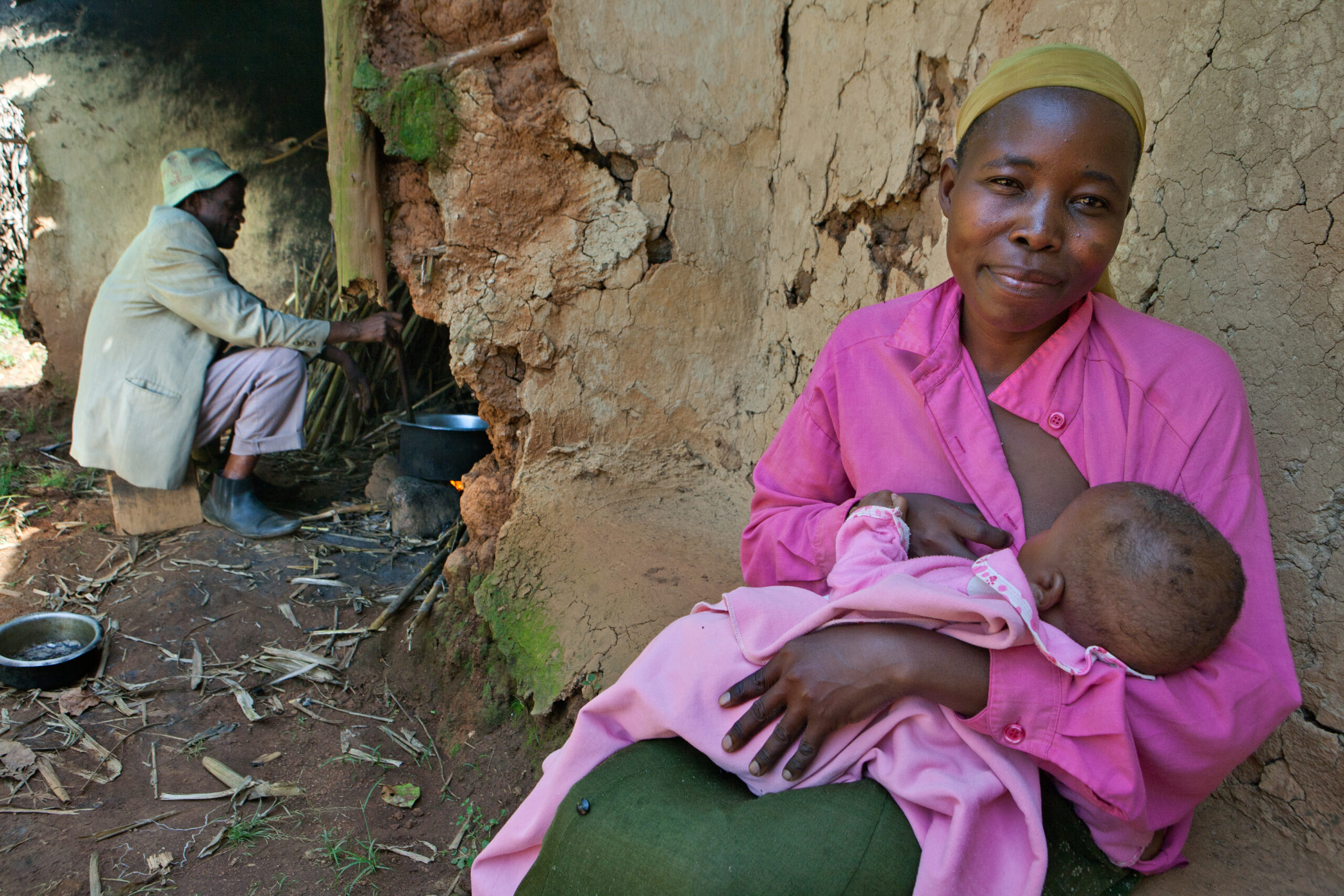
Latching on to support: protecting breastfeeding from COVID-19 disruptions

Photo: Salim Asim Mapesa prepares food while his wife Hadija Akongo breastfeeds Ruth, their 6-month-old infant in Kakamega, Western Kenya. Engaging male partners increases support for optimal infant feeding. PATH/Evelyn Hockstein
Exclusive breastfeeding for the first six months and continued breastfeeding up to two years of life or beyond are recommended by the World Health Organization as the best way to give babies a healthy start in life. Breast milk provides the perfect nutrition as well as important antibodies to strengthen burgeoning immune systems. These antibodies help young children fight infections, including COVID-19 and common threats like diarrheal disease.
Breastfeeding takes effort, and mothers are better set up for success when surrounded by support. This includes supportive partners, family, peers, healthcare workers, and systems and policies that enable breastfeeding and pumping. However, the COVID-19 pandemic has disrupted access to peer support and in-person breastfeeding services. Furthermore, some baby food producers have compounded the problem by invoking baseless fears that breastfeeding can transmit SARS-CoV-2 and marketing infant formula as a “safer” alternative to breastfeeding. Current evidence shows that the virus cannot be transmitted via breastmilk and that breastfeeding helps protect children against COVID-19.
These disruptions are causing global breastfeeding rates to fall. In certain hospitals, they have fallen by 40 to 50 percent since the start of the pandemic. This is bad news for children, and with rates of global food insecurity and malnutrition climbing, breastfeeding has never been more important.
Thankfully, global leaders still recognize the importance of breastfeeding. Building on pre-COVID efforts that successfully increased the prevalence of breastfeeding by 50% over the past several decades, more efforts are underway to increase support for mothers during the COVID-19 era and beyond. In a joint statement, UNICEF Executive Director Henrietta Fore and WHO Director-General Dr. Tedros Adhanom Ghebreyesus emphasize commitments made to prioritize breastfeeding-friendly environments for mothers and babies. These include protecting mothers from aggressive marketing from the baby food industry, ensuring healthcare workers have proper resources and information, and ensuring employers allow women the time and space they need to breastfeed.
Additionally, the global human milk bank community is more actively increasing access to donor human milk. When a mother’s own milk is not available, WHO recommends pasteurized donor human milk as a first alternative. Supplying such milk requires human milk banking networks and supportive policies. Last year, for the first time, the global human milk banking community came together to share learnings, collaborate, and plan for current and future challenges.
Finally, progress in national and local jurisdictions offers examples of how to move forward. In Kenya, the Breastfeeding Mothers Bill is moving forward in the legislative process. If passed, it would legally require workplaces to provide a private space for breastfeeding or to express breastmilk that will include storage facilities for safely storing milk. In Pakistan, Nutrition International’s Right Start program is training Lady Health Workers to provide breastfeeding counseling and support to new mothers. The program is seeing results.
Breastfeeding is essential for babies and for our future, but no one can do it alone. When mothers are supported by engaged and equitable caregiving partners, family and friends, healthcare workers, and policies and employers that enable breastfeeding and human milk banking, then babies have a better chance at a strong start in life.
Support like that is worth latching on to.


